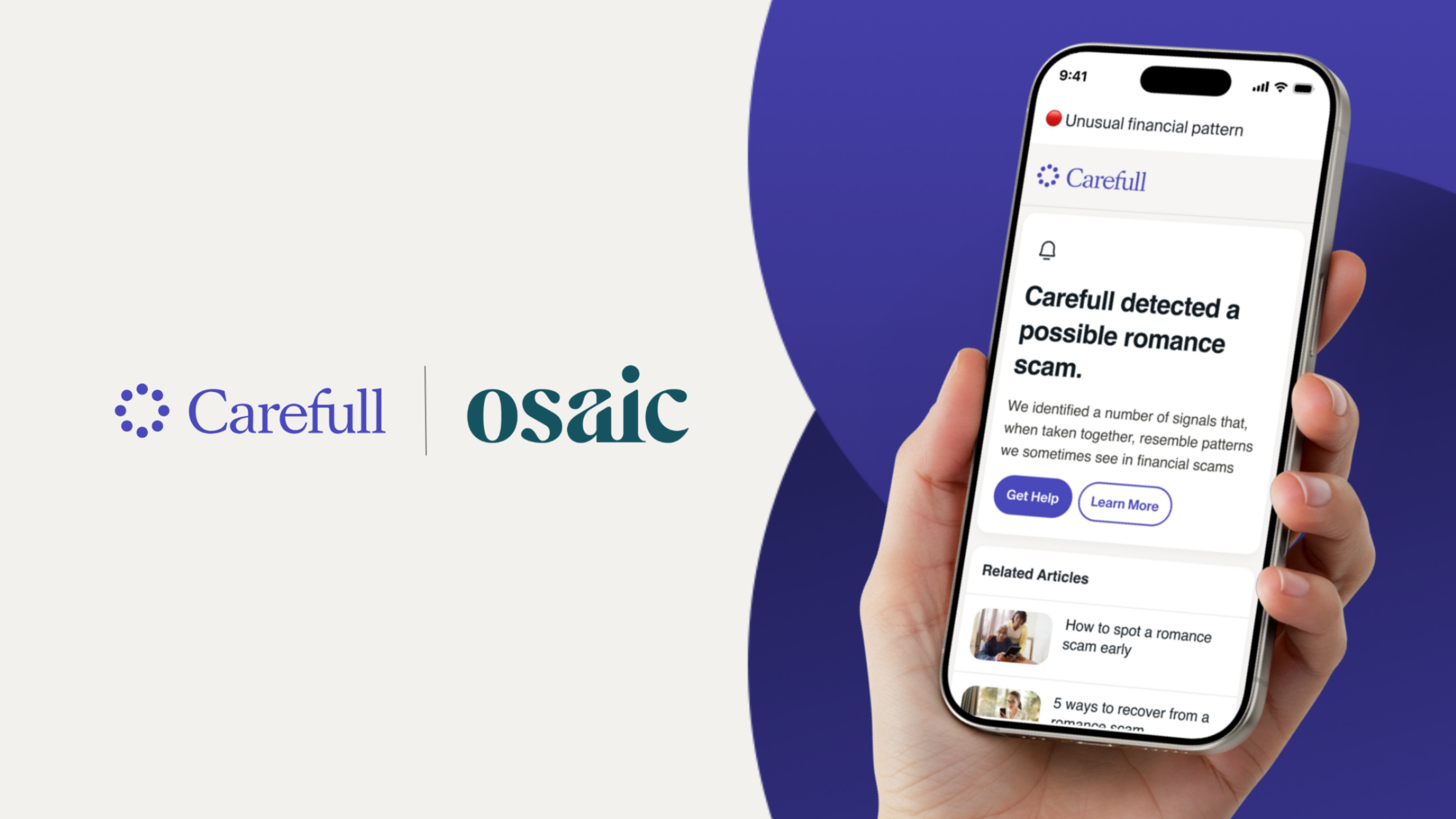How Financial Institutions Can Support Families During Alzheimer’s and Brain Awareness Month and Beyond
.png)
Every June, Alzheimer’s and Brain Awareness Month brings attention to a disease that impacts more than 7 million Americans. For financial institutions, it can serve as a reminder of the important role they can play in supporting those living with Alzheimer’s or other forms of dementia.
Financial institutions are uniquely positioned to support this at risk segment of the population and those caring for them. That’s because they are on the front lines of life’s financial transitions–helping families protect finances, detect fraud and exploitation, and navigate moments of vulnerability with trust and guidance.
More importantly, banks and credit unions that incorporate tailored solutions for adults with Alzheimer’s into their operations can position themselves as compassionate institutions that stand by their account holders through all stages of life.
The link between Alzheimer’s and finances
While Alzheimer’s is commonly linked to memory loss, research shows that one of the earliest skills to deteriorate is the ability to manage money—often years before noticeable memory issues appear.
- Those with Alzheimer’s disease and related dementias are more likely to miss bill payments up to six years before a diagnosis compared with healthy adults, according to a study led by researchers at Johns Hopkins, University of Michigan and the Federal Reserve Board of Governors.
- Credit scores among people who later develop dementia begin falling sharply long before their disease is formally identified, according to research from Georgetown University and the Federal Reserve Bank of New York.
- Household wealth of people with dementia declines at a much faster rate in the decade before diagnosis than the wealth of people without dementia, according to a study published in JAMA Neurology.
- A University of Southern California study of adults age 50-plus found that vulnerability to scams could be an early indicator of dementia.
What financial institutions can do
Often, by the time Alzheimer’s is diagnosed, money mistakes have been happening for years. This delayed detection represents a missed opportunity to increase financial safety and security. It’s time for financial institutions to take a more proactive approach.
Help families recognize the financial signs of dementia. Raising awareness about how dementia and cognitive decline can impact money management can help older adults and their families spot early warning signs. Financial institutions can play a key role by providing education through in-branch materials, email newsletters, webinars, and in-person education.
Train employees on dementia awareness. Financial institutions should provide ongoing training to help frontline staff recognize the signs of Alzheimer’s and interact effectively with affected account holders. Incorporating real-world scenarios led by dementia experts can be especially effective.
Offer smart monitoring that detects changes in financial behavior. Changes in financial behavior related to Alzheimer’s can easily go undetected by traditional transaction alerts. That’s why financial institutions must invest in technologies built specifically to detect issues impacting older adults. Behavioral analytics powered by machine learning and AI can spot subtle changes that can be early indicators of dementia, such as late, missed and duplicate payments, changes in spending patterns, and increased susceptibility to scams.
Encourage the use of trusted contacts and view-only account access. For early detection to be effective, information needs to be shared in a timely manner. One approach is to allow account holders to name trusted contacts and to grant them view-only access to accounts or to account alerts. Having that second set of eyes from a trusted family member who can quickly intervene when small money mistakes are identified can prevent them from becoming detrimental financial problems.
Financial institutions have a responsibility to protect account holders with Alzheimer’s and other dementias. Fortunately, technology exists to help financial institutions provide this protection.
Carefull was built specifically to recognize senior-specific risks and support coordination with family caregivers. Its smart monitoring technology determines what is normal behavior to catch changes that can be preliminary signs of cognitive decline, such as:
- Out-of-character purchases, transfers, and withdrawals
- Changes in geographic radius of purchases (shorter distances traveled can indicate issues with navigation/getting lost)
- Increased charitable or political contributions
- Late, missed, and duplicate payments
- Swings in spending, including pharmacy spending
Carefull’s comprehensive platform also includes a Trusted Contacts system that allows older adults to give trusted family members view-only access to accounts and alerts so that they can get involved, if necessary. It offers education through timely articles provided to users in their Carefull dashboard, weekly activity summary email, monthly newsletters, and co-branded microsites built for FI partners. And it includes credit, identity, and home title monitoring to provide comprehensive financial protection—plus $1 million in identity theft insurance.
To learn how Carefull can help your bank or credit union protect older adults, schedule a demo with our team.
Need support or have questions about memory loss or dementia? The Alzheimer’s Association 24/7 Helpline (800.272.3900) is a free service offering support for people living with dementia, caregivers, families, and the public seeking guidance.

3 Steps to Safer Money,
Try it Free for 30 Days
Step 1
Start your free,
no-risk trial
Step 2
Connect the accounts and cards you want protected
Step 3
Stay alerted to any
unusual activity





.png)

